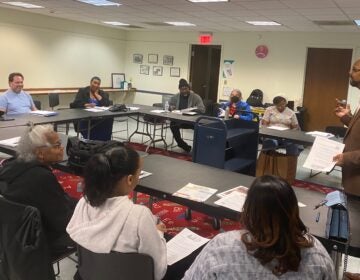Philadelphia civil forfeiture procedure faces test in federal court
ListenA federal lawsuit accuses the city of Philadelphia of taking too much in civil forfeiture cases.
When prosecutors go after homes or other assets as part of their criminal cases, it can affect more than those accused of direct wrongdoing.
The suit claims the city of Philadelphia seizes nearly $6 million a year from residents, twice as much as Brooklyn and Los Angeles combined. The money is equivalent to about 20 percent of the Philadelphia district attorney’s office budget.
Marchella Sourovelis, whose son was charged with drug possession, said the city seized the family’s home in a civil action on the very day she and her husband were taking their son to drug treatment. They’re fighting to regain possession as they continue living there.
“Every month, we go to court, this 478 room. We speak to the DA and, every month, he gives us different paperwork to fill out and he says it’s a process,” she said. “And the next month, we go back. And it’s a process, and the whole time we worry about our son.
“He’s gone through the program, and he’s doing well and wants to get back to school, back to a job and they won’t let him in our house,” Sourovelis said. “Who is going to help him get back on his feet?”
Sourovelis is frustrated and feels she’s receiving the run around from the district attorney.
Darpana Sheth, an attorney with the Institute for Justice, said the Sourovelis family case is not uncommon.
“Whether it’s a home, car or cash, the Philadelphia system is rigged so you don’t have a prompt opportunity to go before a judge and challenge this,” Sheth said. “Instead, you get stuck in the Courtroom 478 loophole where you keep going back over and over again and deal directly with prosecutors. That lack of a prompt hearing violates the constitutional right to due process under law.”
The civil asset forfeiture law allows property to be seized if police believe it is linked to drugs or other crimes.
District Attorney Seth Williams’ office issued a statement saying it can’t comment on pending litigation, but says it pursues property forfeiture “judiciously.”
It went on to say when properties are used in drug distribution, decent law-abiding people suffer greatly, their quality of life plummets, the safety is threatened and their property values decrease.
WHYY is your source for fact-based, in-depth journalism and information. As a nonprofit organization, we rely on financial support from readers like you. Please give today.
























